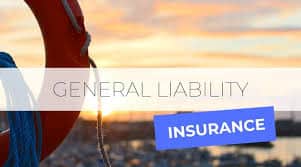It is inevitable that there will be losses in business, and the question is how to handle or overcome them. You need liability insurance to help protect your business against damages or losses that will or can occur in the course of working because business losses are unavoidable and can happen at any time. About general liability insurance policy, general and commercial policies and coverage in liability insurance will be discussed in this article.
General Liability Insurance Policy
General liability insurance, often known as commercial or business liability insurance, serves to cover both property damage and bodily injury for which your organization or business is legally accountable. It’s a form of insurance coverage that helps protect businesses from claims that occur as a result of routine services provided by the company’s staff.
Or to put it another way, general liability insurance protects you and your business against “generic” claims involving bodily injury and property damage. As a result of this, your organization is protected from the costs of property damage claims brought against it. Employees’ medical expenditures if they get hurt on the job. Injury claims against your company are advertised.
Because of this, we will know how much liability insurance will cost us, as well as the basis for the cost because everything depends on the nature of our company’s operations.
What Is The Cost Of General Liability Insurance?
The cost of general liability insurance, as well as the elements that contribute to the cost, is determined by your specific business goals. In other words, the cost is determined by the aspects that contribute to the success of your business, such as:
- Your line of work
- Your geographical location
- Number of employees
Additionally, general liability insurance covers several items that assist protect your firm from claims of damages arising from typical business activities, including the following:
- Damage to property
- Physical harm
- Defense expenditures
- Injuries to individuals and businesses
Commercial General Liability Policy
A Commercial General Liability (CGL) policy protects your firm from financial loss if your services, business operations, or personnel are responsible for property damage, physical injury, or advertising injury. It includes non-professional negligent acts as well as professional negligent acts. Any losses that you are found responsible for will be covered by a commercial general liability insurance policy up to the policy’s limit.
A commercial general liability insurance policy isn’t required for every business or organization; it’s only necessary for certain types of businesses. As a result, I’ll tell you in a few moments who the commercial general liability insurance is for.
What Are the Businesses That Need Commercial General Liability Insurance?
As a result of negligence-related lawsuits that can bankrupt firms without insurance, commercial general liability insurance protects your business. A general liability policy is a must for all small enterprises, especially those in the following professions:
- Architecture and engineering
- Architecting and construction
- Contractors
- Businesses in the field of information technology
- Agencies with a creative ability
- Consultants and freelancers
- Professional services such as accountants, lawyers, medical professionals, and therapists.
How To Purchase General Lability Insurance For A Business
In purchasing commercial general liability insurance, it can be as a standalone policy, or as part of a Business Owners Policy, or even as part of a Commercial Package Policy. You need to consult with an insurance specialist to determine the type and amount of coverage you require. Likewise, If you do not get adequate coverage from either of these bodies, then you should consider obtaining a commercial excess policy to give further protection.
General Liability Insurance Policies
General liability insurance policies often cover you and your business for personal injury and property damage claims originating from your products, services, or operations. It may also protect you if you are to be accountable for damage to your landlord’s property.
Employee injuries, auto accidents, court costs (in most states), craftsmanship, intentional acts, or professional mistakes are not covered by general liability insurance policies.
Commercial General Liability Coverage
Commercial general liability insurance covers firms for personal injury, property damage, and advertising injury caused by your company’s business operations, products, or personnel. Most firms want commercial general liability coverage to protect themselves from financial losses caused by negligence.
It defends a corporation from some of the most typical charges arising from normal business operations. Non-professional carelessness is covered by commercial general liability. Because of the negative impact that a lawsuit can have on a corporation and the frequency with which such liability cases occur, CGL coverage is one of the most significant insurance products. Standard Commercial general liability coverage includes the following:
#1. Liability For Bodily Injury And Property Damage
Bodily injury and property damage coverage, however, protect against losses resulting from insureds’ legal liability for bodily injury or property damage; to others originating from non-professional negligent acts or liability deriving from their premises or business operations. Even in the absence of tangible bodily harm, mental injuries and emotional discomfort can also be considered bodily injuries.
#2. Personal And Advertising Injury
Personal and advertising injury liability protects an insured from responsibility originating from specific offenses such as:
- Libel \sSlande
- Arrest without warrant
- Aggressive or illegal prosecution
- Violation of another’s copyright
- Using someone else’s advertising concept
- Inappropriate eviction, entry, or violation of privacy
#3. Medical Payments
Medical payments coverage checks on payments for injuries experienced by a non-employee as a result of an accident on the insured’s premises or while exposed to the insured’s business operations. Thus this coverage can begin without a court order. This allows for the fast resolution of minor medical claims without resorting to litigation.
General liability insurance covers medical expenses if someone other than an employee is harm on the premises of your organization. When an employee gets harm on the job, workers’ compensation compensates them. To obtain payment for medical expenditures, the injured party simply needs to file a claim. Your medical coverage policy will cover all reasonable medical expenses, such as the following:
- Medical primary care
- Prescriptions for medication
- Surgical expense
- Fees for ambulance
- Charges for hospitalization
- Fees for nursing
- Funeral costs in case of death
#4. Directors And Officers Liability
Companies that have directors and officers are in the protection of damages resulting from claimed or real wrongful acts they may have committed while in their roles by directors and officers liability insurance. Therefore, if you make a mistake, lie, omit something, or make a false statement, this policy covers you. Other plans also give the same coverage to employees as well.
#5. Liquor Liability
As a result of a patron being high and harming himself or others, liquor liability insurance protects your business against loss or damage claims. It is also likely that your business may need this coverage if it manufactures, sells, serves, or facilitates the use or purchase of alcohol in any way shape, or form. In addition to commercial liability coverage, liquor liability coverage can be purchased on its own. A basic commercial general liability policy thus does not cover liquor-related claims if you do not obtain this additional coverage.
#6. Pollution Liability
This form of coverage provides industrial, commercial, and agricultural property owners, managers, and developers with a wide spectrum of pollution liability protection for gradual, as well as sudden and unintentional, first-party and third-party environmental liabilities. Therefore, this protects assets from unexpected environmental exposures that could have a significant impact on earnings as well En outre, it protects against environmental threats that may cause injury, property damage, or pollution clean-up costs.
What is General Liability Insurance Good For?
Generally, general liability insurance is good in defending you and your business against claims for bodily injury and property damage caused by your products, services, or operations. It may also cover you if you are deemed liable for property damage caused by your landlord.
What Is an Example of General Liability Insurance?
An example of general liability insurance is notice when an engineer does not warn about the dangers of not putting on the safety boot or the helmet to his workers; one of them is wounded on the head while working. This body injury claim is covered by general liability insurance.
What Does a General Liability Policy Not Cover?
A business’s general liability insurance covers a great deal, but not everything. It will not cover auto accidents related to your business, employee injuries and illnesses, damage to your business property, errors in professional services, claims that exceed your policy limit, or criminal conduct committed by you or your workers.
Is general liability full coverage?
How does liability insurance differ from full coverage? When you are driving, liability-only auto insurance will cover damage to other vehicles and injury to other individuals. Full-coverage policies contain both liability insurance and supplementary coverage for vehicle damage.
What Are the Three Coverage Parts to a General Liability Policy?
There are three basic coverage areas that comprise a CGL policy:
- bodily injury and property damage (BI/PD).
- personal and advertising injury.
- medical payments coverage.
What Is Proof of General Liability Insurance?
A certificate of liability insurance is evidence that you are covered by general liability insurance. It is also known as a certificate of general liability insurance, evidence of insurance, or an ACORD 25 form. This paper contains information regarding coverage amounts and limits.
Do I Need Both General and Professional Liability Insurance?
Yes, you need both types of insurance if you face both types of risks. In some instances, an employer or customer may stipulate that you hold professional liability insurance, general liability insurance, or both as a condition of your contract.






